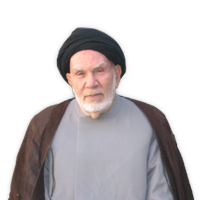Is it correct for a knowledgeable person to express his/her perfections?
In the Name of Allah
Is it correct for a knowledgeable person to express his/her perfections?«شهِد اللّه أَنه لا إِله إِلا هو و الملائکة و اولو العلمِ قائماً بِالقسط لا إِله إِلا هو العزِیز الحکیم»
Allah bears witness that there is no god but He, and so do the angels and those endowed with knowledge, upright with equity. There is no god but He, the All-Mighty, the All-Wise.
(Ayah 18 of Surah Ale-Imran)
In the above Ayah, God Almighty bears witness that “there is no god but He” and through this bears witness to His Essence, His Existence and His Oneness.
A question that arises here is, “Is it correct or not for a mystic to bear witness to his/her existence with respect to philosophy and gnosticism?”
Many interpreters believe that in the world of nature and humanity, it is contemptible for a mystic to praise his/her own greatness. They say that it is more desirable for a mystic, gnostic and knowledgeable person to conceal his/her praiseworthy characteristics in order to show humility.
It happens very often that when people speak of their own good qualities, others reproach them and if they are their friends they may even become alienated from them because they have praised themselves.
The above view is common in the material world. In other words, if a person is asked, “Who are you?” and the person says the truth about his/her scientific path and perfections, most people will not like it. For example, if the person starts saying he/she has studied in a specific field or is specialized in a certain area of knowledge, people’s faces gradually turn away and they say, “It is enough; we have understood your point; there is no need for you to continue.” Most people think that such a person is proud and self-absorbed.
The above manner of treating people has always existed and will exist for several years. Is it right to feel upset because a person expresses realities?
Ostad Mousavi says the following in reply to the above question: This common manner of treating people is incorrect. I think this view was developed by those who do not have very strong characters or the schools that propagate seclusion.
I have read a book called Khanqah which explains that during a certain period a group of people followed a leader and they formed circles; however, their leader was not a very learned person and had little social and scientific knowledge. Therefore, as soon as a knowledgeable person came to them and talked about his/her knowledge, those in the circles would criticize the person. The reason for this was that their leader was not knowledgeable enough and they feared that their leader’s status would be overshadowed by that of the knowledgeable person and their circles would be destroyed.
The above belief appeared around a thousand years ago and later faced decline and gradually it reached those in the bazaar.
Let us now discuss whether expressing one’s good qualities is correct or not according to religion and the Prophet of Islam, Muhammad (PBUH).
It is reported that during the era of ignorance and the beginning years of Islam some people would come to Masjid al-Haram and started praising their ancestors. The holy Prophet used to say to such people:
Forget your ancestors; instead of talking of bones and your ancestors, talk of yourselves and what you have achieved. Talk of your knowledge, of your dignity and perfections as expressing perfection is perfection itself.
The above statement by the holy Prophet is very significant for us. Therefore, those who criticize why some wise people express their good qualities are not right. A generous person should say that he/she is generous. A kind person should express his kindness. He who is beneficent should express his good quality. Although the manners and actions of generous and kind people are themselves signs of such people’s perfection and greatness, it is permissible and even favorable for them to talk about and discuss their perfections. This will help others to recognize such people.
This is why a scientist, researcher, philosopher, author or a poet should duly introduce him/herself. Is it not true that knowledge is a manifestation and attribute of God? Therefore, it should be expressed and not concealed. Such an act will encourage the listeners to move towards perfection as well and not to choose wrong paths.
Almighty God says in Ayah 11 of the holy Surah Al-Zuha:
«و اما بنعمة ربک فحدث»
But as for the favor of your Lord, report it.
O man! God has granted you the favor of understanding things well, a beautiful handwriting, or the ability to understand chemistry, math or other subjects. Therefore, you should tell people that God has granted me this favor and I have achieved this status through my efforts.
It has been stated in books of Hadith (narrations) such as Bihar Al-Anwar by Alllameh Majlisi, Amali by Sheikh Saduq and other books that when the axis of the world, Imam Ali (AS), saw the ignorance of the people around him and all the sciences of the world existed in his heart, he used to say very often: Ask me whatever you wish before I leave you all. I swear by God that I know the answer to every question you ask me.
Esteemed philosopher and researcher, Ostad Seyyed Ali Mousavi, says:
Expressing knowledge and perfection is showing gratitude for it. However, it should be made apparent upon the following two conditions:
1. The person says the truth and expresses the reality and nothing more.
2. There should be no form of pride in the person’s expression.
Sometimes the issue of “pride” is used as an excuse by some people and as a reason why perfections should not be expressed. However, we should say in reply that pride is not only seen in expressing knowledge and perfections; it is also seen in those who adorn themselves in public and in the way some people walk, talk, sit or eat.
Esteemed researcher, Ostad Seyyed Ali Mousavi, reiterates:
If a person expresses perfection and there is some pride in the person, this is not permissible. However, if the truth, divine love and favor is expressed, this is true love. This is why when Allameh Majlisi used to go to the mosque, he used to move with a lot of grace. A group of people would read Ayah Nur on his right side and another group would read the Ayah on the left side. Some people would protest to him and he would reply: This manner will cause magnificence for the religion and will introduce it to others. What I do is for the greatness of my religion and not for myself.
We thank esteemed philosopher, Ostad Seyyed Ali Mousavi, who causes the rain of favor of knowledge, philosophy and gnosis to pour upon our hearts every minute and “gives life to the dead”.
--------------------------------------------------------------------------------
One of Ostad Mousavi’s students of philosophy, wisdom and gnosis




Comments
0